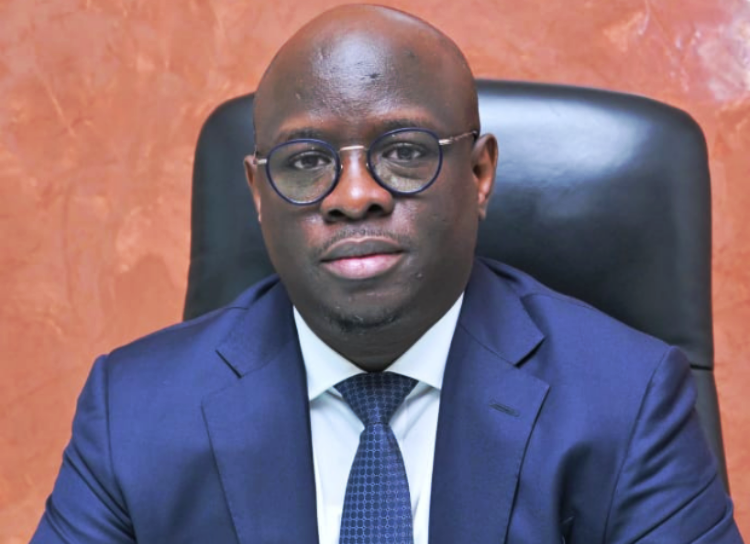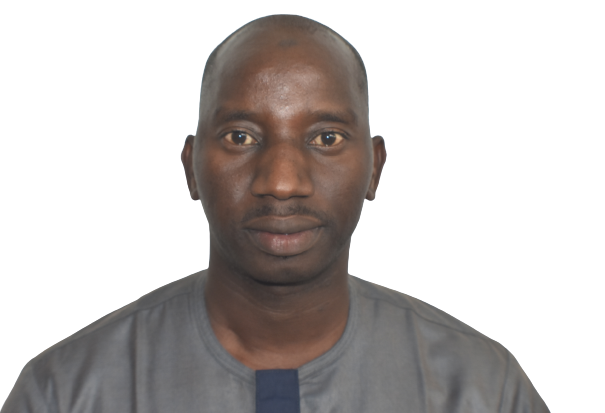Banjul, The Gambia – A heated debate erupted in The Gambia’s National Assembly during the second reading of the 2024 Proposed Draft Constitution, with one lawmaker accusing colleagues who voted against the 2020 Draft Constitution of being “selfish individuals.”
The strong words came from Hon. Amadou Kanteh, the Busumbala lawmaker, as he contributed to the debate on the new draft, which follows its initial reading in 2024.
The motion for the second reading was moved by Minister of Justice Dawda Jallow and seconded by Hon. Amadou Camara, the member for Nianija Constituency.
Hon. Kanteh recalled the extensive consultations undertaken by the Constitutional Review Commission (CRC) in 2020, which he said aimed to produce a “people-centered” draft reflecting the aspirations of Gambians. He squarely blamed members of parliament for the rejection of that earlier draft.
His accusation of “selfishness” immediately drew strong reactions from fellow parliamentarians. Several members raised points of order, arguing that such language was unparliamentary and could derail the debate. “I think it’s not a good language for a national assembly to use for its own parliamentarians,” one member stated, warning that it could lead to “chaos” in the assembly.
However, the Speaker, after reviewing the standing orders and parliamentary practices, ruled that while the term “selfish” might be strong, it was not deemed “insolent” in this context and allowed Hon. Kanteh to continue.
The Speaker emphasized the importance of allowing parliamentarians to express their views freely.
Continuing his remarks, Hon. Kanteh clarified that his use of “selfish” was in the context of leaders prioritizing personal or political agendas over the “benefit of Gambian people” and their expressed views, which he argued were captured in the 2020 draft.
He questioned the origin of the 2024 draft, suggesting it appeared suddenly after extensive discussions and workshops on consensus-building for the previously contentious issues.
He highlighted key provisions from the 2020 draft that he believes promoted transparency and accountability, such as the exclusion of Chapter 5, which Gambian citizens reportedly wanted to ensure leaders were “accountable” and of “incapable character.”
He also pointed to provisions requiring National Assembly confirmation for ministerial appointments and a minimum educational qualification of at least a high school graduate for ministers, both of which he argued were absent or diluted in the new draft.
“If you want to be a leader, be a selfless leader. Don’t be a selfish leader,” Hon. Kanteh concluded, urging his colleagues to consider the people’s will.
Following Hon. Kanteh, the Honorable Member for Niani, Hon. Omar Jobe took the floor, acknowledging that no constitution is perfect and advocating for the 2024 draft to proceed to the next stage where amendments can be made.
He emphasized that the current 1997 Constitution has been amended multiple times, illustrating that constitutions evolve. He urged parliamentarians to “rise above party politics and put the Gambian people first.” He outlined key constitutional principles he looked for, including the structure of documents, separation of powers, checks and balances, and fundamental rights.
The Honorable Member for Jeshwang, Hon. Sheriff Sarr, echoed calls for the bill to advance to the referendum stage, where “the citizens decide,” as they are “more than us,” referring to the 58-member assembly versus 2 million Gambians.
He reminded his colleagues of promises made during the 2016-2017 period to deliver a new constitution and urged them not to repeat the rejection of the 2020 draft. He argued that rejecting it at this stage would be “selfish” and deprive citizens of their right to contribute.
The Honorable Member for Wuli East, Hon. Suwaibou Touray, stressed that the debate should focus on the “merits and principles” of the bill, reserving details for the second reading.
He contextualized the constitutional journey since 1965, highlighting past instances where national interests were sidelined for individual or party agendas, leading to delays and challenges. He pointed out that key demands from the public, such as term limits and diaspora voting, are embedded in the current draft.
“No single party can make this constitution pass. No party. It can only be a constituency case,” he stated, urging collaboration. He warned that “history will not be kind to us” if lawmakers fail to move forward, emphasizing their mandate to serve the people’s interests.
He concluded by urging colleagues to forego individual interests for the national interest and allow the bill to progress to the committee stage, where public input can be gathered.
The debate continues as the National Assembly deliberates on the proposed new supreme law of The Gambia.










